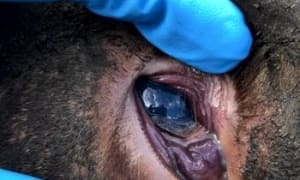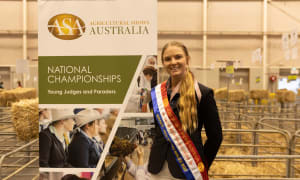NEW national research paints a picture of Australian farmers' declining mental health, including those in Victoria, prompting calls for government support and industry–broad collaboration to establish farmer–to–farmer support networks nationwide.
"The National Farmer Wellbeing Report" commissioned by Norco (an Australian–owned dairy cooperative) in partnership with the National Farmers' Federation(NFF) had found that 33 per cent of Victoria's farmers reported a decline in their mental health over the past few years.
"In recent years, close to half (45 per cent have felt depressed, with more than half (55 per cent) experiencing anxiety," the report said, with almost one in 10 (8 per cent) farmers saying it was a frequent experience.
Among the most confronting statistics is that nearly half of the Victorian farmers (43 per cent) have had thoughts of self–harm or suicide in their lifetime, while a third (30 per cent) have attempted self–harm or suicide.
The NFF's Vice President, David Jochinke, a Victorian grain and livestock farmer, said the wellbeing report highlights a sense of shame and stigma still felt by many farmers when talking about their mental health and urges governments and industry representatives to step in to overcome barriers providing mental health support.
Latest Stories
"... we're also calling on all levels of government to urgently assess the resourcing they provide to farming communities as its clear their unique needs are not being met by existing services," said Mr Jochinke.
Well, aware of the concerns raised in the report, Federal Member for Indi, Dr Helen Haines, said, "The findings from the NFF regarding mental health issues among our farming community are concerning, but also highlights the resilience of farmers in the face of significant challenges including natural disasters."
"The findings regarding the impact of natural disasters on farmers' mental health and finances align with the experiences that have been shared with me as a member of parliament," Mrs Haines said.
"Mental health support in regional, rural and remote Australia is harder to access than in the major cities," she said.
Dr Haines stressed the government must do more to increase the numbers of mental health professionals in the regions through offering university debt relief to psychologists, psychiatrists, mental health nurses and social workers who live and work in the regions and increasing training locally, to ensure those experiencing mental ill–health can get the help they need.
"I have spoken with Minister for Mental Health Emma McBride and will continue conversations with her to ensure the Government understands the needs of regional Victoria," she added.
Dr Haines encouraged anyone having a tough time with their mental health to seek help, especially farmers.
She referred to a new online resource, https://takingstock.community, offering resources created with farmers and rural communities in mind.
Retired veterinarian, Dr Susan Swaney, based in Victoria's Otways region, is a passionate advocate for improved support for farmers to deal with mental stress issues which she regularly saw in her work in rural areas.
As a volunteer with the Australian Veterinary Association, she continues to lobby for appropriate assistance for struggling farmers and sees animal welfare as key to this.
"My take on this is that there is such pressure on farmers to look after their stock well and the majority do want to," Dr Swaney said.
"Natural disasters are a massive issue when it comes to this and so are poor finances; if farmers become mentally unwell they struggle to do the job they know they should be doing, to manage their livestock well and this becomes a vicious circle," she explained.
"I believe there is a real need for farmer relief, rural finance advisors and mental health experts to be actively involved in farming communities and that will be one of the best ways we have of helping animal welfare," said Dr Swaney.
The success of such an intervention is evident in Tasmania, which has turned around its suicide rate among farmers from being one of the highest in the country, according to Dr Swaney, who recently attended a conference there.
A scheme was developed by a group in Tasmania called RAW (Rural Alive and Well), and while there, she spent time with outreach workers.
Dr Swaney said, "My main reason for doing this was to go with these guys onto farms and to see what they thought of my concept of bringing people in to mind farms while they sought mental health assistance, spoke to rural finance people and took a holiday."
She said the majority thought it would be very beneficial.
Despite their struggles, the NFF report said that nearly two–thirds (60 per cent) of Victorian farmers remain optimistic about the future and viability of farming in Australia and believe farming is a rewarding career path for the next generation.
However, the research highlighted that more than three–quarters (77 per cent) of those surveyed believed the Australian public undervalues the nation's farmers and their role.
Dr Swaney concurred with this finding and believed there should be better communication between those who work in agriculture and those who live in urban areas to understand the pressures of rural life.
If you or anyone you know needs help:
• Lifeline on 13 11 14
• Kids Helpline on 1800 551 800
• Beyond Blue on 1300 224 636
• Suicide Call Back Service on 1300 659 467
• Headspace on 1800 650 890
• ReachOut at au.reachout.com
• MensLine Australia on 1300 789 978
• Head to Health at headtohealth.gov.au













